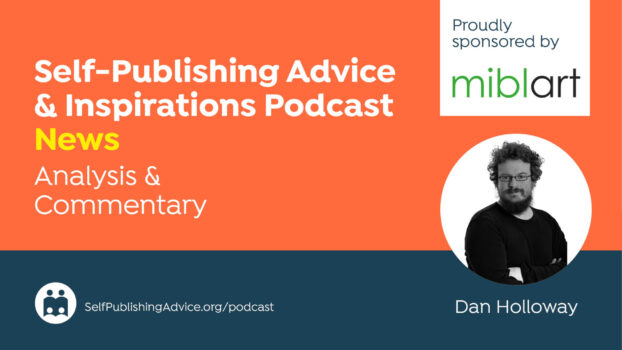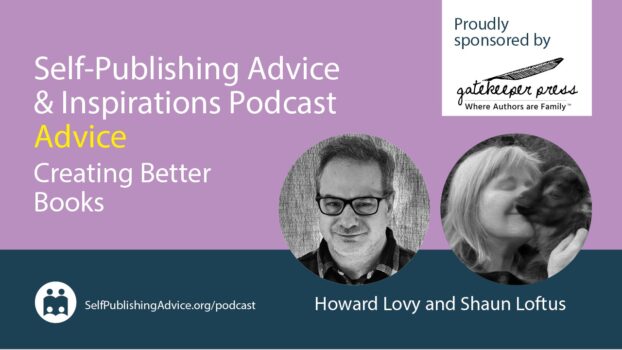In an over-crowded marketplace, we assume it’s reviews that sell books and, predictably, it’s now possible to buy “honest reviews”. Could paid-for reviews be a good investment? Possibly, but I think we should be asking ourselves a different question—how do books find their readers? Or, to put it another way, what makes a book visible in the marketplace?
For years now, research (conducted by Mslexia among others), has indicated that readers aren’t swayed by press reviews. Amazon’s flawed and vulnerable system has increased readers’ scepticism because they know it can be manipulated by authors and reviewers. That same research confirmed that book-buying decisions are based largely on the personal recommendation of someone whose judgement readers trust, or whose taste they share.
Once this might have been a friend or a book club. Now the source is likely to be a book blog, an online forum, or Facebook. This is where readers can discover our books and I suggest our time would be well spent publicizing our books online—not by pushing good reviews, but by interacting with readers. I call it self-promotion by stealth. It’s slow, time-consuming, and you can’t distil it into a Tweet, but it’s much more effective.
It worked for me. My fourth novel and first indie ebook, HOUSE OF SILENCE became a UK Kindle bestseller within a few months. I believe it sold because I’d built up a modest but enthusiastic following, particularly on book forums like BookCrossing, Book Club Forum, Read It Swap It, Kindle Users’ Forum, etc. Readers who liked the book spread the word for me and their enthusiasm—not mine—sold it to their friends.
I think readers promoted my ebook because I’d put in a lot of time on these forums, discussing writing, reading, my books & their issues. I write contemporary fiction, and its themes (mental illness, disability, bereavement, PTSD, romance in middle age) have provided fertile ground for lively forum discussions.
A good book might never get reviewed, but there's no reason why it shouldn't get talked about and this can lead to reviews. If you're on a forum where your book’s being discussed, it's easy to say, “I'm so pleased you enjoyed it. Could you possibly write a short Amazon review saying what you just said in the forum?” Readers are flattered to be asked and often happy to comply. They appreciate interaction with authors and they’ll talk about it. This gets your name out there without your having to resort to the kind of blatant self-promotion that has now become self-defeating. If you have a promotional signature on the forum and use a cover as your avatar, any forum post on any subject is a plug for your book. That post might be viewed hundreds of times.
Once you’ve established a rapport, you’ll find that readers like to help, but first you have to build that relationship, reader by reader. This makes huge inroads into your writing time of course, but doing this produced sales that now earn me a living as an indie author (and I don’t tweet, I don’t have a blog, and no longer have a publisher). Of course, I’d rather be writing, but I also want my books to find their readers. The trick is, to find a way to enjoy the marketing, do it without feeling it's pointless or a bit desperate.
Call me Pollyanna, but I regard readers as friends I haven't met yet. Where my labour-intensive system scores over blatant self-promotion is, even if your sales figures remain disappointing, you've still had some great online chats with potential readers. You’ve learned something—perhaps even made some new friends.
I believe it's more important to get our books talked about than reviewed (it’s certainly not good reviews selling the 50 SHADES trilogy!). Our biggest challenge is what indie author, Dan Holloway has called “discoverability”—making our books visible in the marketplace so readers find them. It can be done. It doesn’t cost money but it does takes time. It requires us to commit wholeheartedly to readers, so they in turn will commit to us. Many of my readers now express a willingness to buy anything I write, regardless of genre. This is what John Locke said we should aim for in his HOW I SOLD A MILLION EBOOKS: a loyal following that provides a guaranteed market for our books.
It’s not enough to just make our books available. No amount of 5-star reviews will make readers buy a book they don’t know exists. We have to tell them about our books, tell them about us. It helps if we’re interesting and I think we have to be sincere. That way, we’re offering something more. A person, not a plug. And that makes all the difference.
Linda Gillard has published six novels, three of them indy. HOUSE OF SILENCE was chosen as Amazon Editor's Pick for Best of 2011 in the Indy Author category.





[…] not surprised. I’m one of the veterans here and some of you have heard me say this before (here’s my previous post on the subject), but for the benefit of new members, this is how you get […]
Dear Linda, thanks so much for writing this. It’s just what I needed to hear. As a first-time author, I feel overwhelmed by all the marketing strategies that I’ve read about. The approach you describe is something I’ve been doing for some time on facebook……it’s very much me. To know that I can keep doing this as an effective marketing strategy is such a relief.
You’ve made my day!
Thank you.
Warm wishes,
Gabrielle
Hi Linda.
Having self-published for more decades than I like to think of, I’ve learned this: if you expect to earn a living from your self-published books, marketing them both in and out of the social media most be engaged with even greater tenacity than given to the writing of them.
Best regards,
Bob Zimmerman
Bob, I blogged for ALLi recently about my views on the tyranny of social media. I use Facebook, but nothing else. I let my fans do the marketing for me. 😉
https://selfpublishingadvice.org/opinion-social-media-no-thanks-id-rather-be-writing/
Hi Linda,
Do you think you’ll ever write a how-to ebook on using indirect marketing to sell indie fiction? I sincerely doubt blogging works for novels–unless you’re already famous, and then you don’t need a blog usually.
I would be glad to buy and review that book if you choose to write it. 😉
[…] Gillard presents Independent Authors and Visibility posted at The Alliance of Independent Authors Advice Blog. “In an over-crowded marketplace, […]
Hi Linda. My peak writing time was the early 2000s. I wrote many short stories for writing mags and was short listed quite a few times so I knew I had some of the skills required. I even managed to get an agent who having gone all the way through my main novel then decided to move to Sweden and disappeared from the radar, I’m sure it wasn’t because of me, but who knows.
My stories and novels have sat on my computer ever since until about four months ago I discovered Kindle. since then I have published a book of short stories,’Triple Treat’ and a novel ‘Deadly Justice?’
My problem is that at 75 I am not computer literate. I have recently gone on to FB but I still do not know what I am doing, but I am working at it. Blogs, websites and twitter are all a foreign language to me but hopefully by reading about people like yourself it will give me confidence to keep going. Ray
[…] them onto Kindle. I e-published four novels in less than a year and that made an impact. I blogged here about how I gradually built up a following, interacting with readers. I call it self-promotion by […]
I agree, Jonathan, about making time. And when anyone gives me a hard luck story about lack of time, I ask them how many hours TV they watch in a week. That’s usually met with stunned silence. I follow up with, “Or you could try getting up one hour earlier every day. A lot of writers do.”
This is the reality. No one has time to write & promote a novel. Some people *make* time. (I gave up doing housework – *sobs* – and watching TV.)
[…] Gillard presents Independent Authors and Visibility posted at The Alliance of Independent Authors Advice Blog. “In an over-crowded marketplace, […]
First class advice Linda.
“…build that relationship, reader by reader” can be a concept that the “want it now” Y generation find hard to grasp. But that’s the reality. Personally, I always encourage igniting the word-of-mouth process with Twitter and a blog. But personal interaction in forums if you have time? No question that would pay off – as you’ve proved. I also suspect it’s not a question of if one can make the time, one HAS to make the time .
For me, this sort of close connection with the reader is a joy. Tweet, FB updates, blog comment etc.are not something to set in opposition to our writing but an opportunity to extend our message. Yes, it has to be kept until after the day’s writing on the work-in-progress is done — and sometimes, you do need to go to that quiet, solitary space where nobody is allowed to follow for a while. But how often? Can’t the conversation with our readers be energising, not exhausting?
Lev, it’s a fulltime job for me & pays me a modest salary, so the exhaustion factor doesn’t really come into it. It’s just part of my job (and I work a long day, like most self-employed people.) But the point I was trying to make is, if you approach self-promotion my way, it isn’t exhausting, it’s rewarding, personally & professionally.
I was on a forum yesterday discussing stained glass windows with some readers. (Book being promoted: THE GLASS GUARDIAN.) I’ve been on FB today discussing full Highland dress. (Book being promoted: UNTYING THE KNOT.) There’s another thread just starting up on my author page about one of my quilts. (I posted a photo.) That could lead to me plugging any of the 3 novels I’ve written featuring textiles. This isn’t exhausting, it’s fun! I don’t know how many books it sells, but it creates relationships with readers and *that* sells books.
You don’t have to take my word for it. Reader Susanne Meyers has posted on my FB author page today in response to this guest blog: “Great article – and I for one know that it works – readers enjoy interacting with their favourite authors and that makes them buy their next book!” Susanne’s a reader I “met” a few months ago on KUF. She’s now a FB friend and has not only read but Amazon-reviewed most of my books.
If there’s another way, more economical of time & effort to get this kind of support from readers, I’d love to hear about it. But I fear, as Roz suggested below, those of us writing literary/contemporary fiction don’t have too many other options.
Excellent post, Linda, with which you know I agree! I think we spend a bit too much time talking about the nuts and bolts of writing, and agonising over reviews, and not enough chatting to readers and potential readers, not just about our books, but about all the related things. I’m sure I’ve sold many copies of the Curiosity Cabinet to lovers of small Scottish islands and embroidery because that was what hooked them in. And I know you love textiles, quilts and so on, too. I still sell antique and vintage textiles on eBay to add to the family income, and I always pop a postcard with one of my eBook covers in with the parcels – lots of people have commented about them to me. I think many people are quite tickled when they buy something from a ‘real writer’, and when some of the fiction involves textiles too, they like it even more. I used to wonder if it was doing any good – one parcel at a time – but when I suddenly realise that I’ve sent out 40 or more nice postcards with details of my book, in the space of a few weeks, and when I spot a little hike in sales – I reckon it’s well worth while. I like the idea of readers as friends you haven’t met yet, very much.
Great blog Linda. You gave me this advice a few months back and I have been trying to use it and also use traditional methods of publicity. But like Lev I find it exhausting and would prefer to just write. I am hoping momentum and word of mouth will continue to grow. take care
Excellently informative piece, Linda. I always think promotion must be easy for writers of genre books, such as straightforward romance or vampire stories, but much harder for those of us who write about contemporary people grappling with life! These novels sell more by readers developing an interest in the author behind them, because it’s our take, our words, our influences and our individual complexity that makes them distinctive. I can imagine these qualities come over well in a conversational environment such as a forum.
Although I agree with your commenter Lev that this is yet *another* task to add to a crowded week, I think it’s a worthwhile one. As you yourself have proved 🙂
I’m a genre author and it isn’t any easier, just different. With so many genre books out it can be hard to make yourself heard over the sheer volume. Within genre, there are more and less popular sub-genres, and no guarantees that writing a certain type of story will guarantee sales. You just have to put yourself out there. 🙂
This is great advice, and honestly, I felt exhausted reading it. The thought of cutting even more deeply into my life by reaching one reader at a time through book forums is overwhelming. I’ve been a published author for several deacdes. I’ve put my backlist mysteries on Kindle and Nook and done some originals e-books. In eighteen months, I’ve seen my sales double. They’re still not a major part of my income as an author (royalties from print books and speaking engagement fees make up the majority), but they are growing. I’ve put all my non-writing energy these last two years into establishing a digital footprint. It seems to be working, slowly.
A really useful insight and useful just at the beginning of my journey as a writer. Thank you Linda for writing it and Orna for choosing to publish it. Here’s to good reading and writing.